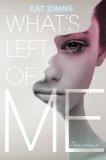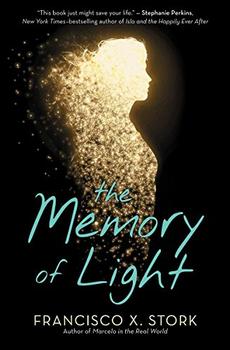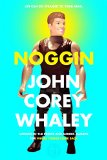Summary | Excerpt | Reviews | Beyond the book | Read-Alikes | Genres & Themes | Author Bio

The Hybrid Chronicles, Book One
by Kat ZhangIn this emotionally haunting debut from Kat Zhang, Eva and Addie are two souls sharing one body…and a dangerous secret.
Eva and Addie started out the same way as everyone else - two souls woven together in one body, taking turns controlling their movements as they learned how to walk, how to sing, how to dance. But as they grew, so did the worried whispers. Why aren't they settling? Why isn't one of them fading? The doctors ran tests, the neighbors shied away, and their parents begged for more time. Finally Addie was pronounced healthy and Eva was declared gone. Except, she wasn't...
For the past three years, Eva has clung to the remnants of her life. Only Addie knows she's still there, trapped inside their body. Then one day, they discover there may be a way for Eva to move again. The risks are unimaginable - hybrids are considered a threat to society, so if they are caught, Addie and Eva will be locked away with the others. And yet...for a chance to smile, to twirl, to speak, Eva will do anything.
I believe readers 13 and up, will enjoy this book, which is more than just a tense, edge-of-your-seat adventure; it is also a moving and thought-provoking drama, with broad appeal. Its exploration about the meaning of identity and a focus on gender issues will bring many interesting discussion topics for the classroom or for a book club...continued
Full Review
(670 words)
This review is available to non-members for a limited time. For full access,
log in with your library card.
(Reviewed by Cindy Anderson).
 Dystopian themes have appeared in literature throughout history, but the first use of the word is credited to John Stuart Mill. In 1868, during a speech to the British House of Commons, he played upon the well-known word, "utopia" (adding "dys," which is derived from a Greek word meaning "bad") and used it to criticize legislators who supported a policy with which he disagreed. He said that they were "dys-topians" because they were supporting a policy that was "too bad to be practical."
Dystopian themes have appeared in literature throughout history, but the first use of the word is credited to John Stuart Mill. In 1868, during a speech to the British House of Commons, he played upon the well-known word, "utopia" (adding "dys," which is derived from a Greek word meaning "bad") and used it to criticize legislators who supported a policy with which he disagreed. He said that they were "dys-topians" because they were supporting a policy that was "too bad to be practical."
As to the word "utopia," it would have been familiar to Mill's audience because it had been around for over 350 years, having been coined by Thomas More (the Renaissance humanist and writer) who combined the Greek words for "good place" (eutopia) and "no ...
This "beyond the book" feature is available to non-members for a limited time. Please log in with your library card.

If you liked What's Left of Me, try these:

by Francisco X. Stork
Published 2017
16-year-old Vicky Cruz wakes up in a hospital's mental ward after a failed suicide attempt. Now she must find a path to recovery - and perhaps rescue some others along the way.

by John C. Whaley
Published 2015
Travis Coates has a good head…on someone else's shoulders. A touching, hilarious, and wholly original coming-of-age story from John Corey Whaley, author of the Printz and Morris Award–winning Where Things Come Back.